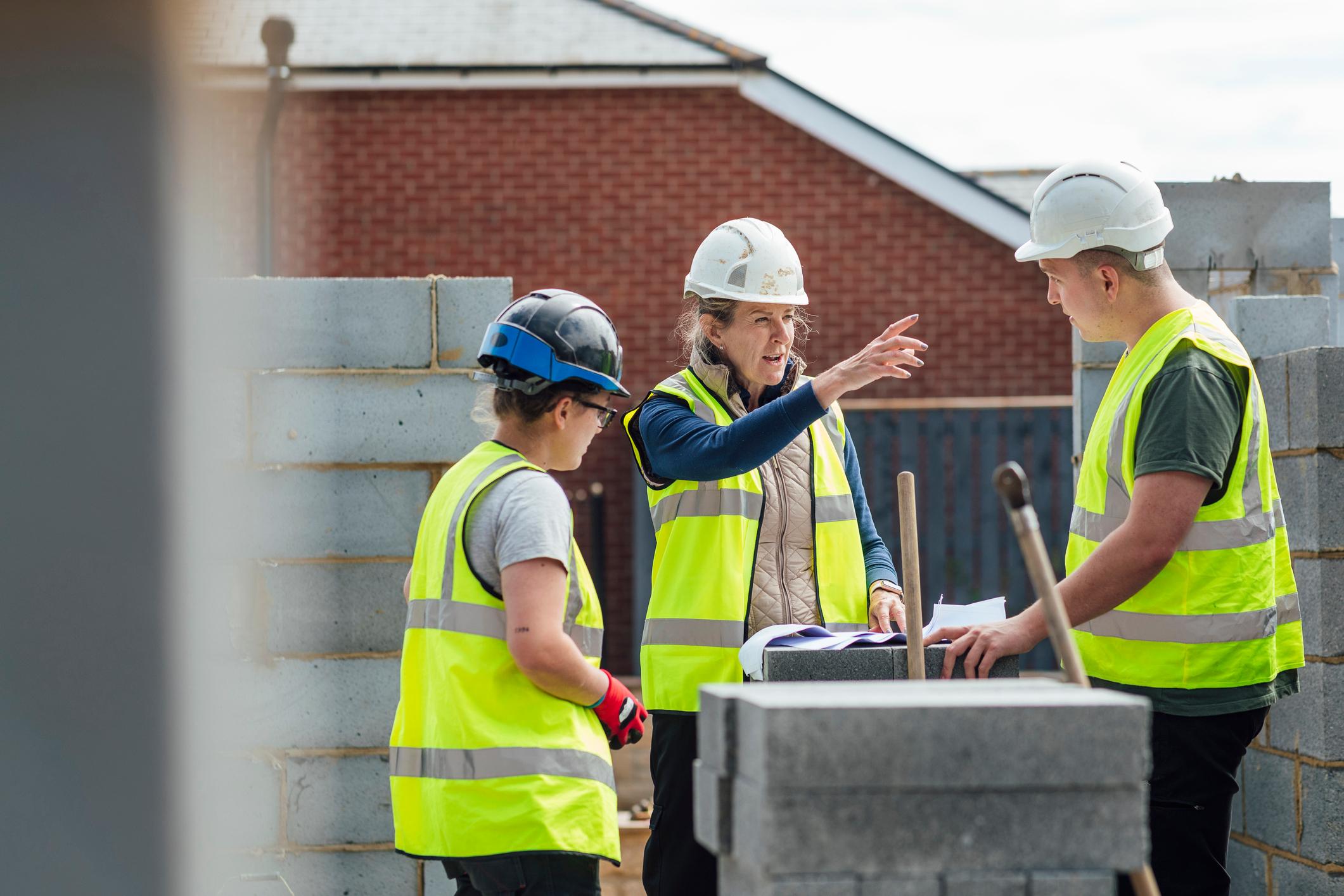
Next steps for Social Investment and the Living Wage
JRF and the Living Wage Foundation hosted a roundtable discussion on Social Investment and the Living Wage on 27 February 2023. Together with 15 attendees from leading foundations and impact investors, they explored how social investors can promote the real Living Wage – acting individually and as part of a wider movement.
Objectives and outcomes
The objectives of the roundtable were to:
- Review JRF’s recommendations in relation to the role social investors can play to promote the Living Wage (LW), including the tools and resources available to address any barriers, and identification of others that are needed.
- Introduce the Living Wage Foundation’s work, including an overview of accreditation standards for Living Wage Employers and Living Wage Funders.
- To explore how social investors can promote change – through individual actions and by working with others within the sector.
The key outcomes of the roundtable included:
- A resource bank for social investors to begin promoting the LW.
- A list of wider stakeholders to engage with to contribute to the movement beyond social investment.
- Ideas to be further explored with social investors on how to support social enterprises.
- Initial ideas for a Social Investor LW accreditation, and what the package of support for this may look like.
Recommendations for social investors
The group reviewed the three recommendations from research recently published by JRF. The recommendations are below, alongside responses from the discussion.
1. Embed Living Wage (LW) considerations in your investment decision making:
- Always look at applicants’ accreditation status, and at the number of their staff being paid the real LW.
- For non-LW payers always ask for reasons, and a calculation of what the cost to them would be if they started paying it.
- Become a Living Wage Funder (LWF) to join a movement of funders, social impact investors and entrepreneurs championing the real Living Wage.
There was clear appetite from foundations and impact investors to include LW considerations in their due diligence processes. Most agreed that it would be appropriate to include questions about payment of LW and accreditation, to ask for calculations from non-LW payers, or even to calculate the cost of LW payment on behalf of applicants. The group was open to exploring the potential development of the Living Wage Funder accreditation for social investment.
2. Support investees and applicants to become Living Wage accredited by:
- Signposting to Living Wage Foundation resources and the tailored help available to all prospective applicants.
- Providing concessionary funding or sponsoring advice and training.
Resources requested by the group included case studies, application forms for becoming a LW Employer and LW Funder, relevant research for context setting and more.
On concessionary funding, the group spoke about:
- The need for closer collaboration between grant and investment processes.
- The challenge of long-term sustainability for LW salaries supported by grants, particularly in industries where low pay is systemic, such as in the care industry.
3. Support enterprises with innovative delivery models that mitigate the trade-off between serving disadvantaged groups and paying staff the real Living Wage.
The group responded that there was a need not just for innovative models, but also a need for new opportunities and wider contributions beyond social investment.
Opportunities and stakeholders
Several opportunities and stakeholders were identified to help promote the LW:
Within the social investment network
- Signposting and promoting the LW with resources within our investee groups, within our organisations and boards, and within the wider network.
- Encouraging co-investors to consider LW criteria in their investment processes is an easy way to promote LW when looking at new investment opportunities.
- Raising the topic of LW when engaging with large investors active in impact investing, such as Local Government Pension Schemes and university endowments.
Within related stakeholders and adjacent networks
- Exploring the partnerships between social enterprises and trade unions.
- Working closely with embedded stakeholders such as Social Enterprise UK, B Lab UK, Share Action and Workforce Disclosure Initiative.
- Identifying and working with networks adjacent to Social Investment such as British Venture Capital Association, Venture ESG, Impact Venture Capital, British Business Bank, Impact Investing Institute.
Through systems change
- Recognising that systemic issues require a holistic approach that is joined up across adjacent networks to influence public opinion and government policy on the Living Wage, particularly in low-paid industries such as care.
Contributions social investors can make
Embedding LW in the investment process
Including questions on LW in investment processes is a key contribution. However, it was emphasised that the approach should be supportive and understanding, rather than intrusive, when working with non-LW paying investees. It is important to recognise the power imbalance that often prevails between investors and investees.
Raising the LW at the outset of an investment process can help reduce any potential friction throughout the relationship between an investor and investee, and pave the way for an open and useful dialogue for both parties. The group considered how to:
- Work with investees post-investment, for example, to include a line item in budgets for paying LW and to set out a roadmap to payment of the LW and accreditation, recognising any specific challenges faced by their investees.
- Set appropriate targets and reporting on the LW with their investees.
- Explore how investees might convert unpaid volunteer roles to LW roles.
- For foundations, how to mobilise their external fund managers to review their portfolios and to ask the questions on LW in their investment processes.
Framing and promoting LW
The group discussed the best way to frame the conversation and make the case for the LW internally and externally across our investees, our own organisations and boards, and our wider social investment networks. This included focusing on:
- The impact case for paying the LW, such as the wellbeing benefits to staff.
- The commercial case for paying the LW, such as attracting employees, improving retention, reducing recruitment costs, creating stronger businesses.
- Embedding LW as part of equity, diversity and inclusion, and environmental, social and governance practices.
- For foundations, working with grants colleagues, the group executive, and the board to explore becoming an accredited LW Funder.
- Considering how to adapt the LW Funder accreditation for social investors.
- Contributing to the wider movement beyond the social investment sector.
Capital and capacity building
As funders, it is exciting to explore new ways to use capital to support investees transition to paying the LW and to becoming LW accredited. Initial thoughts included:
- Looking at other models of investment, such as revenue sharing models, that might better suit investees as they make the transition towards LW.
- Investigating how social investors and leaders in the social impact sector could either fund grant payment of the LW, or fund capacity building that helps investees change and adapt their business models to accommodate the LW.
Next steps
We hope this note and the related resources provide a useful starting point to help more social investors promote and engage investees, their organisations and boards and wider networks on the LW.
The key next steps will be to:
- Begin engaging stakeholders in networks adjacent to social investment.
- Continue discussions around new ways of funding, investing and working with investees to enable them to pay the LW and become accredited.
Find out more about becoming a Living Wage Employer, and a Living Wage Founder.
If you would like to explore further with us how social investors can better contribute to the wider Living Wage movement, please email Denise Holle and Harmony Chan at socialinvestment@jrf.org.uk for general queries, or Marina Ageyeva at marina.ageyeva@livingwage.org.uk about a potential Social Investor LW accreditation.

This report is part of the work topic.
Find out more about our work in this area.